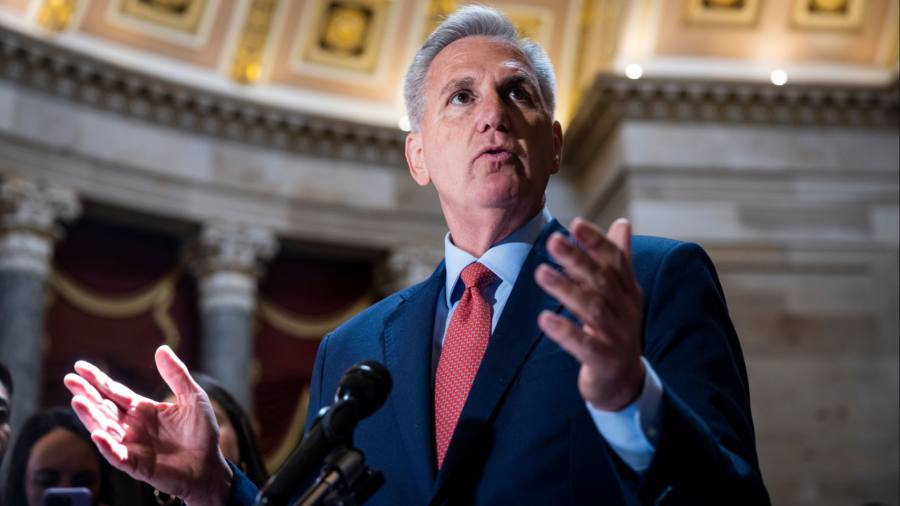Kevin McCarthy said Wednesday morning that Republican negotiators would return to the White House to “try to finish” the debt-ceiling talks, though he warned that the two sides “remain very far apart” on some issues.
Speaking to reporters on Capitol Hill, the Speaker of the House of Representatives comes just over a week before the crucial June 1 deadline. U.S. Treasury Secretary Janet Yellen has repeatedly warned lawmakers that the federal government risks defaulting in early June, as early as June 1, if Congress does not raise the debt ceiling within days.
Yellen reiterated her forecast Wednesday morning. Uncertainty over the debt limit has put “some pressure on financial markets,” she told The Wall Street Journal, adding that Treasury bills due to mature in early to mid-June “are trading at . . . significantly increased.”
Investors have been shying away from bonds due in early June, sending prices for those securities down sharply. In early May, the Treasury Department was forced to auction off 4-cycle Treasury bills at the highest yield ever to attract buyers.
The stress is not limited to debt markets. Stocks fell for the week, with the blue-chip S&P 500 and the tech-heavy Nasdaq Composite both down nearly 2%.
“I think this should serve as a reminder of the importance of getting a deal done in a timely manner,” Yellen said, warning of the possibility of “serious financial market distress” even before an agreement is finally reached.
McCarthy sat down with Joe Biden on Monday for talks that the two leaders described as “productive” after the U.S. president cut short his overseas trip for the G7 meeting to head to Washington for debt-ceiling talks.
But the apparent standoff in the days since has raised concerns in Washington and financial markets about whether the two sides can reach an agreement in time to avert an unprecedented default that economists warn would wreak havoc on the global economy.
Any deal between the White House and congressional Republicans would need to be approved by a majority in the House of Representatives – which Republicans narrowly control – and Democrats who control the Senate by an equally narrow margin. Biden and McCarthy, respectively, have come under increasing pressure from the left and right of their respective parties to reject calls for compromise.
Still, McCarthy insisted on Wednesday that a deal was possible — and that he could get it through the lower house of Congress.
“I think we can make progress today. I hope we can make progress.”
The most hawkish member of the McCarthy meeting has put aside concerns about a default and suggested the Treasury could simply prioritize debt payments.
But Yellen refuted those claims on Wednesday: “Our payment system is built to pay our bills, not to decide which bills get paid and which ones don’t.
“Generally speaking, prioritization is not operationally feasible. So there are going to be some tough choices to make.”
In a new report from the Brookings Institution, Wendy Edelberg, a senior fellow at the Brookings Institution, warns that costs will mount if market pressures persist as the debt-ceiling standoff drags on.
Given the U.S. Treasury market’s status as the safest haven in the global financial system, the U.S. government benefits from lower borrowing costs than other countries, which Edelberg said would translate into more than $750 billion in interest savings over the next decade .
“The cost to taxpayers could be high if the debt limit is allowed to be constrained at the cost of losing some of its advantages,” she wrote with her colleague Noadia Steinmetz-Silber.
They noted that the premium on debt maturing in June has risen and that if it eventually extends to all maturities, the interest cost of financing federal debt could increase by more than $4 trillion.


